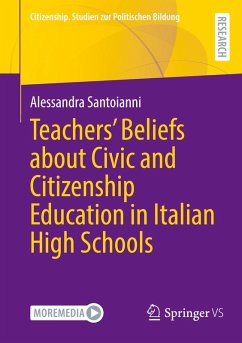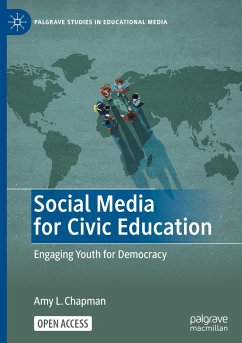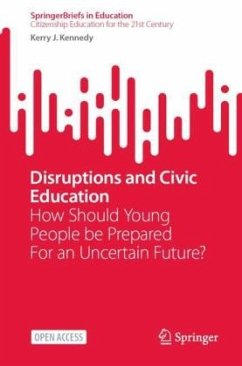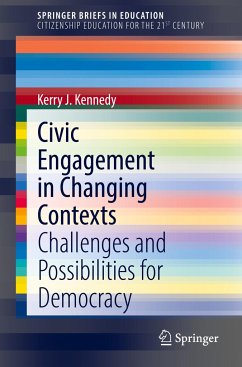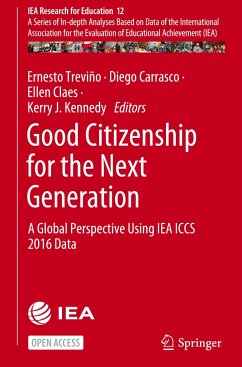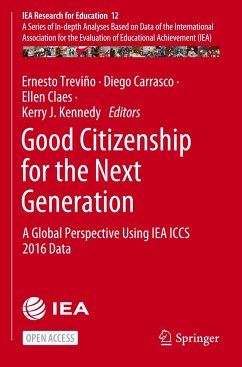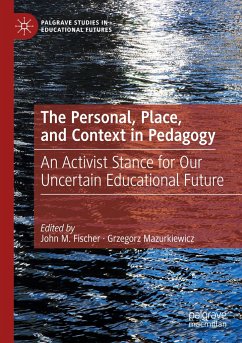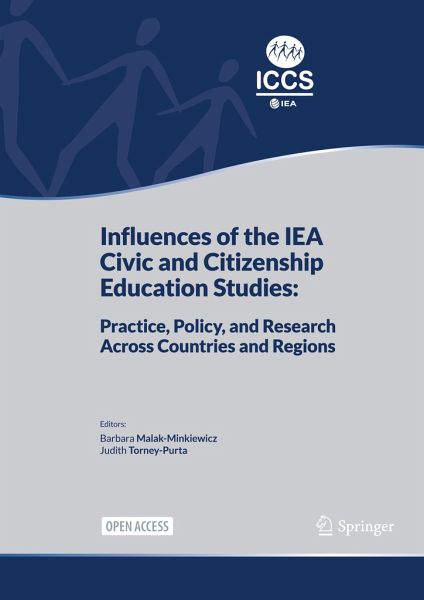
Influences of the IEA Civic and Citizenship Education Studies
Practice, Policy, and Research Across Countries and Regions
Herausgegeben: Malak-Minkiewicz, Barbara; Torney-Purta, Judith
Versandkostenfrei!
Versandfertig in 6-10 Tagen
53,49 €
inkl. MwSt.

PAYBACK Punkte
0 °P sammeln!
This open access book identifies the multiple ways that IEA's studies of civic and citizenship education have contributed to national and international educational discourse, research, policymaking, and practice. The IEA International Civic and Citizenship Education Study (ICCS), first conducted in 2009, was followed by a second cycle in 2016. The project was linked to the earlier IEA Civic Education Study (CIVED 1999, 2000). IEA's ICCS remains the only large-scale international study dedicated to formal and informal civic and citizenship education in school. It continues to make substantial c...
This open access book identifies the multiple ways that IEA's studies of civic and citizenship education have contributed to national and international educational discourse, research, policymaking, and practice. The IEA International Civic and Citizenship Education Study (ICCS), first conducted in 2009, was followed by a second cycle in 2016. The project was linked to the earlier IEA Civic Education Study (CIVED 1999, 2000). IEA's ICCS remains the only large-scale international study dedicated to formal and informal civic and citizenship education in school. It continues to make substantial contributions to understanding the nature of the acquired civic knowledge, attitudes, and participatory skills. It also discusses in-depth how a wide range of countries prepare their young people for citizenship in changing political, social, and economic circumstances. The next cycle of ICCS is planned for 2022.
In this book, more than 20 national representatives and international scholars from Europe, Latin America, Asia, and North America assess how the processes and findings of the 2009 and 2016 cycles of ICCS and CIVED 1999/2000 have been used to improve nations' understanding of their students' civic knowledge, beliefs, attitudes, current civic-related behaviors, and intentions for future participation in a comparative context. There are also chapters summarizing the secondary analysis of those studies' results indicating their usefulness for educational improvement and reflecting on policy issues.
The analyses and reflections in this book provide timely insight into international educational discourse, policy, practice, and research in an area of education that is becoming increasingly important for many societies.
In this book, more than 20 national representatives and international scholars from Europe, Latin America, Asia, and North America assess how the processes and findings of the 2009 and 2016 cycles of ICCS and CIVED 1999/2000 have been used to improve nations' understanding of their students' civic knowledge, beliefs, attitudes, current civic-related behaviors, and intentions for future participation in a comparative context. There are also chapters summarizing the secondary analysis of those studies' results indicating their usefulness for educational improvement and reflecting on policy issues.
The analyses and reflections in this book provide timely insight into international educational discourse, policy, practice, and research in an area of education that is becoming increasingly important for many societies.





